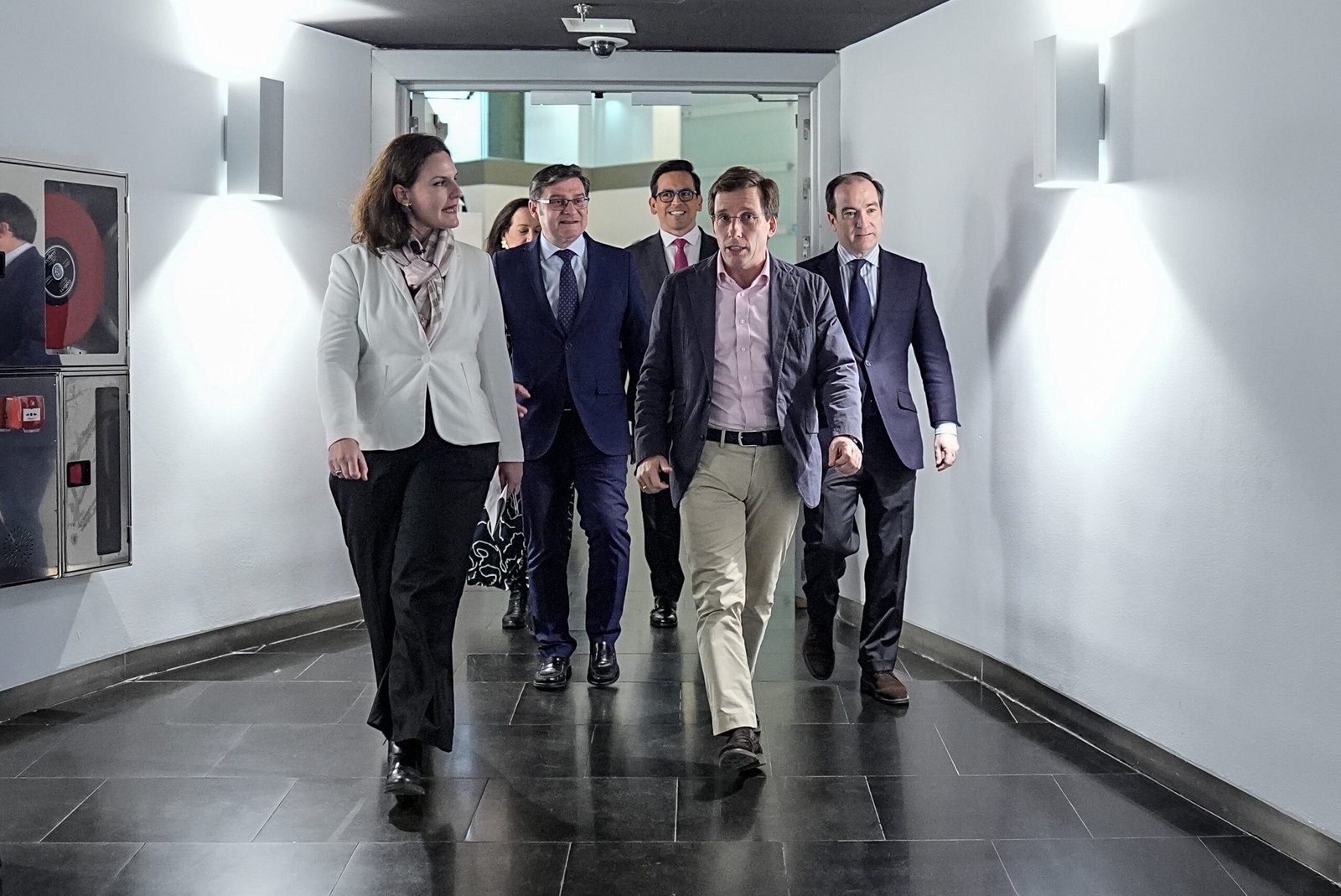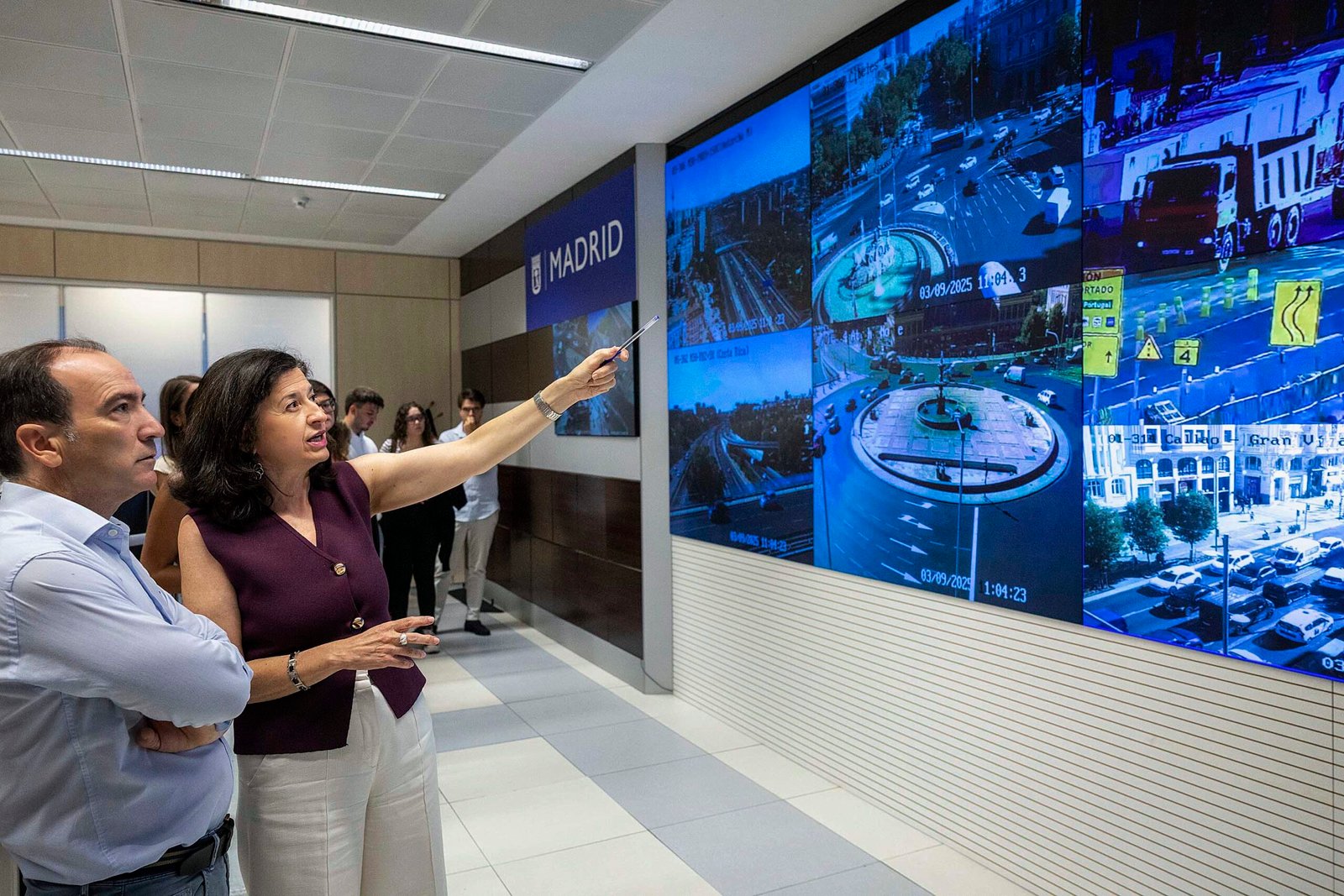Madrid’s mayor, José Luis Martínez-Almeida, participated on Wednesday in a conference on decarbonization of the construction sector, organized by the Madrid City Council and C40 Cities at the Caja de Música auditorium in CentroCentro. Also present were the Urban Planning, Environment, and Mobility Delegate, Borja Carabante, and the Housing Policies Delegate, Álvaro González.
This event marked the culmination of a two-year project that, in collaboration with the C40 Cities network, brought together leaders and officials from London, Madrid, and Oslo to rethink the construction, renovation, and operation of buildings and consider the social value of the built environment.
In a conversation with C40’s European Regional Director, Julia López Ventura, Almeida defended the model of city that Madrid is building to be more efficient, intelligent, and healthy. He emphasized that the capital has a clear commitment to decarbonizing the construction sector, as the built environment is key to reducing emissions and improving urban quality of life. Almeida highlighted that this commitment is materialized in the comprehensive strategy Transforma Madrid, which includes the Adapta Plan focusing on housing; the Rehabilita Plan focused on buildings; and the Transforma Tu Barrio Plan designed for the entire building complex.
C40 Cities is a network that includes major cities worldwide with the goal of collaborating on common commitments to drive actions aimed at reducing greenhouse gas emissions and adapting to the effects of climate change. In Madrid’s case, the Madrid 360 Environmental Sustainability Strategy, through the Roadmap to Climate Neutrality by 2050, sets a greenhouse gas reduction target of 65% compared to 1990 levels, demonstrating a more ambitious goal than that set by the European Union.
The VISIBLE project facilitated the exchange of cutting-edge experiences from London and Oslo to reduce the carbon footprint of materials used, implement efficient construction processes, and minimize energy consumption demand in the operational phase of buildings.
Furthermore, the C40 VISIBLE project recognized the good practices of the City Council, including specific actions such as the construction of the new cultural center with a library made of wood in Butarque (Villaverde). This building integrates maximum environmental commitment solutions such as natural ventilation and lighting, the use of wooden structures, renewable energy utilization, and landscape integration with public spaces, including native species and rainwater harvesting for irrigation.
Another example demonstrating Madrid’s commitment to clean and decarbonized construction is the initiative by the Municipal Housing and Land Company (EMVS Madrid) to promote ‘Iberia Loreto’ in the Barajas district. This construction project, which will provide 52 affordable rental homes, focuses on industrialized construction with wood, a versatile material that has a significantly lower carbon footprint than concrete. These homes will be sustainable with minimal energy consumption and will incorporate new technologies in facilities to promote self-consumption.
The wood industrialization system brings economic and environmental benefits during the construction process, reducing timeframes by up to 40%, saving costs, and allowing a reduction of up to two years in the construction time of these homes. In terms of sustainability, once the development is completed, the wood used in its facades does not pollute, and its properties absorb polluting gases from the atmosphere.
On another note, the VISIBLE project led to the implementation of the TANDEM initiative, which, in collaboration with ECODES and the Green Employment Platform, provided training and practical experience in sustainable rehabilitation of public buildings for a group of vulnerable individuals in the Villaverde and Puente de Vallecas districts.
Exchange of Experiences
The Wednesday event also featured a roundtable discussion where representatives from various European institutions (Official College of Architects of Madrid, FutureBuilt (Norway), City of London, and City of Warsaw) exchanged ideas and opinions on equitable decarbonization in the construction sector.
This event is part of a three-day seminar that included workshops on clean construction, green employment, and training or socially responsible green public procurement, among others. /



